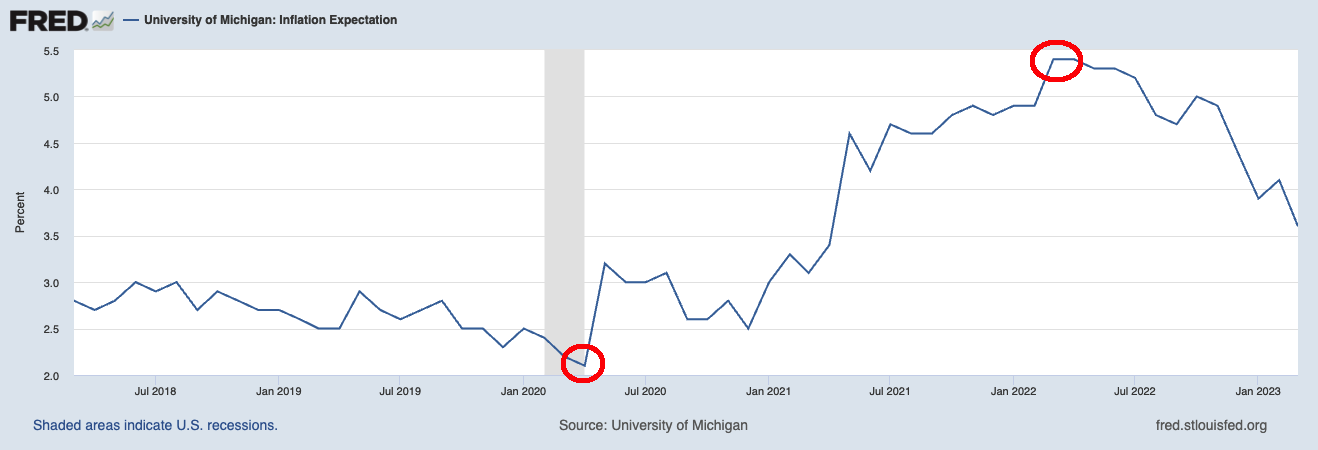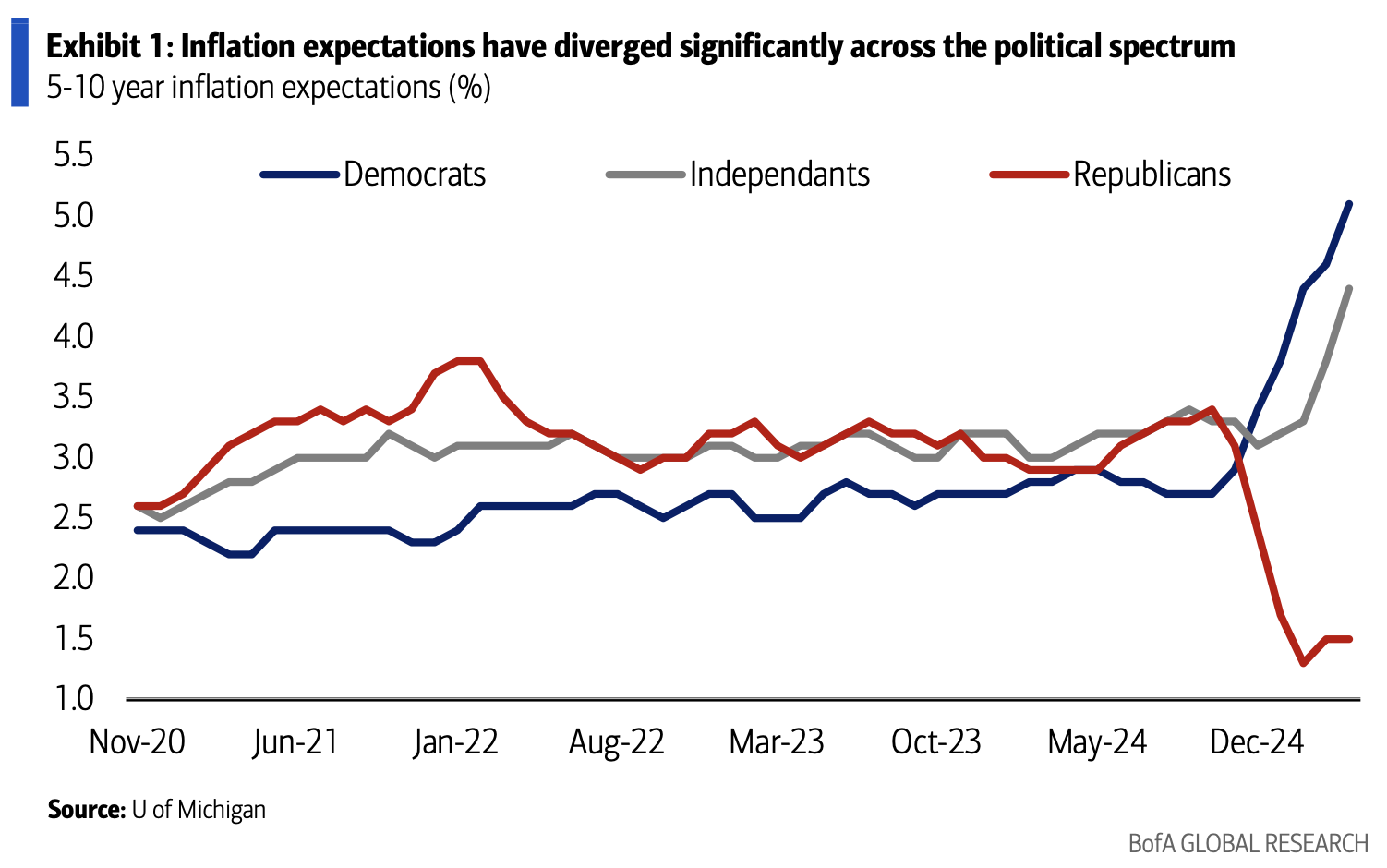Hey, just back after taking the redeye home from Futureproof Colorado, and getting my feet back under me. But I wanted to briefly discuss tomorrow’s release of the University of Michigan (UMich) long-term inflation expectations.
You probably know my thoughts on both Inflation Expectations and Sentiment Surveys.
ICYMI, Inflation Expectations are a backwards looking exercise in the Recency Effect. But even worse, they typically lag actual inflation by 6-12 months. As i explained in 2023:
“Jerome Powell and the Federal Reserve spend a lot of time worrying about Inflation Expectations. They shouldn’t. Generally, Sentiment Surveys are useless — most of the time — the exception being on rare occasions at the extremes.
They aren’t merely lagging, backward-looking indicators, but instead, inform us as to what the public was experiencing about 3-6 months ago. Typically, it takes people a few weeks or months to subconsciously incorporate broad, subtle changes into their internal mental models, and longer to consciously recognize those nuanced shifts.”
The chart gives the entire story away:

Future inflation expectations were at their aboslute nadir just before the biggest inflation spike in decades occurred. And when future inflation expectations were at their highest levels? We were about to start a 12 month collapse in CPI/PCE inflation measures.
So, mostly useless — at least as a predictor of longer term inflation rates. But they are great at telling you what the inflation of the past 6 months was.
As to general sentiment surveys, well the chart at top showing political bias should make you realize how flimsy this is as a measure. Especially when consumers say one thing, but then do the exact opposite with their money.
The chart at top is from Bank of America; here is their take:
The UMich survey shows substantial divergence by political affiliation (Exhibit 1). Long-term inflation expectations have surged among Democrats and Independents, to 5.1% and 4.4%, respectively, in recent months. However, expectations have cratered to 1.5% among Republicans. This stark divergence has led some analysts to dismiss the UMich survey, arguing that the results are being driven by political preferences rather than an actual assessment of inflation dynamics.
All of the above is before we get to issues prevalent in both mainstream and algorthmic social media.
My sincere wish is that economists in general, and the FOMC in particular, put less emphasis on consumers’ inflation expectations when deciding upon monetary policy.
Update: May 16, 2025
Barron’s: “Consumer sentiment hits second-lowest reading on record”
The latest University of Michigan survey released Friday showed sentiment hit its second-lowest reading on record. The index slid to a reading of 50.8, below the 52.2 seen last month and the 53.4 expected by economists. The reading was just shy of the all-time low of 50 seen in June 2022.
Previously:
What Else Might be Driving Sentiment? (October 19, 2023)
More Sentiment Nonsense (July 28, 2023)
More Inflation Expectations Silliness (July 5, 2023)
Is Partisanship Driving Consumer Sentiment? (August 9, 2022)
The Trouble with Consumer Sentiment (July 8, 2022)
Sentiment LOL (May 17, 2022)
Sentiment versus Spending (April 18, 2022)


